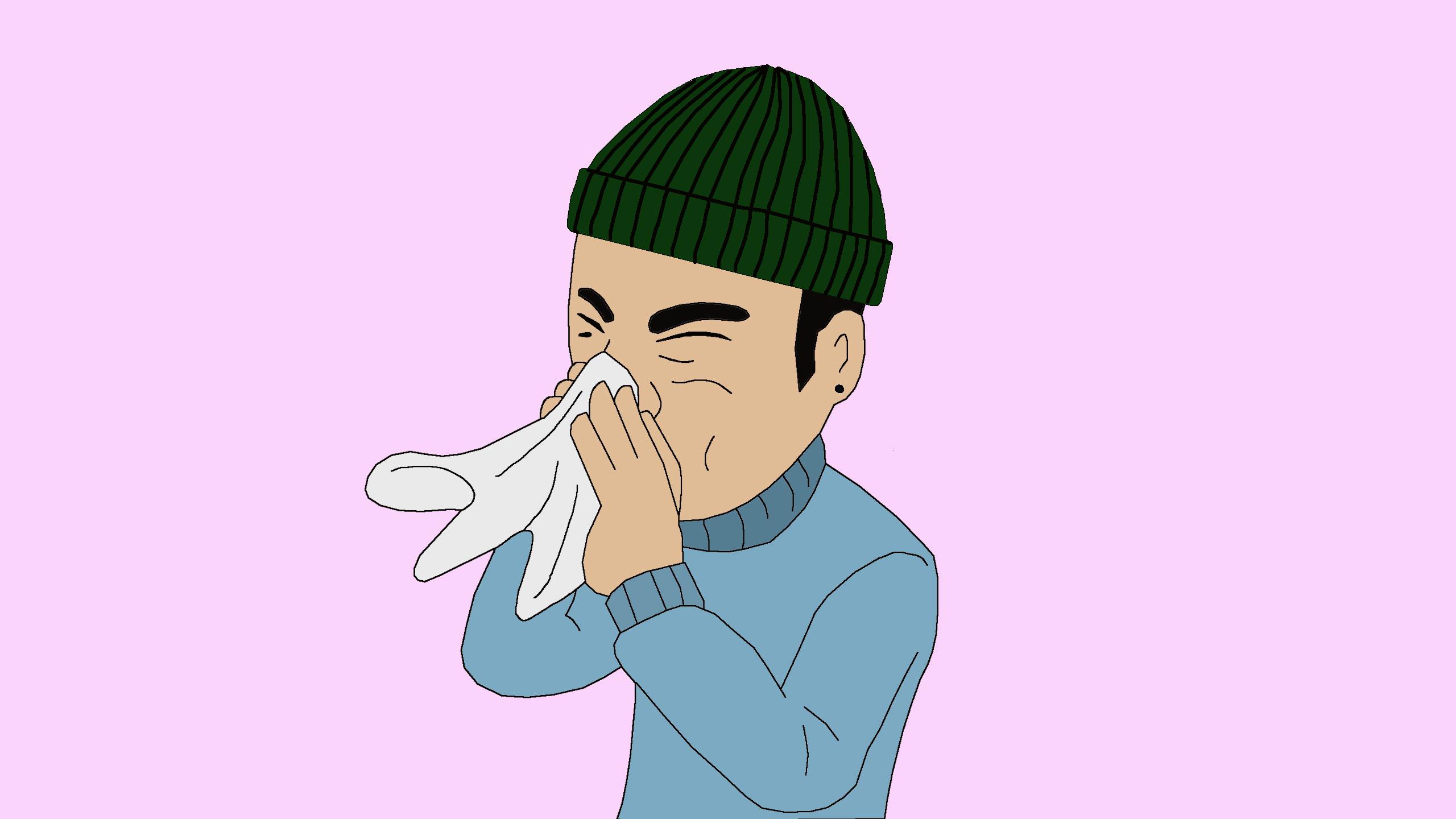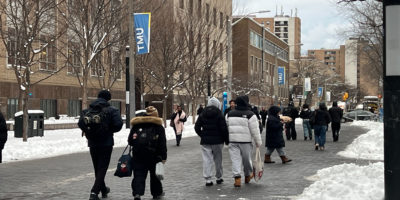By Cassidy Garbe
September sickness: it happens every year. After a month of mingling amongst thousands of others in the tight quarters of lecture halls and Grace O’Malley’s, germs incubate and students get the sniffles.
While research shows the cold weather weakens your immune cells, making them less effective at fighting off viruses, Dr. Mario Estable, an associate biochemistry professor at Ryerson University, says droves of students getting sick one month into the semester is more than just a case of lower temperatures.
Estable, an expert in molecular virology, biochemistry and microbiology, says the September sickness phenomenon is due to a variety of factors, ranging from the stresses of a new school year to the unintentional spreading of germs.
“The shortening of daylight, the dreaded return to school, the added responsibilities and stresses of school, university and work, after time off with family [and] friends in the summer all can contribute to feeling more sluggish and tired,” Estable says.
While viruses like the common cold are more dominant in colder, low humidity environments, Estable says that first and foremost, there needs to be microorganisms present, including bacteria and viruses, that can be transmitted.
Combined with the close quarters university students eat, sleep, work and breathe in, germs tend to replicate and latch onto the next unsuspecting host. And vulnerable, sleep-deprived students in close quarters with already-depleting physical health due to the stresses of a new semester make for great hosts.
“The handle on the door you just opened, the coffee just handed to you by the barista, the hand you just shook, the pencil you just borrowed, all contain viruses from the person who handed them to you,” he says.
Every year, Karly Cywink, a second-year media production student, says she gets sick when school starts. She currently has strep throat and an ear infection. “It’s been happening since elementary school and high school, it’s just a thing,” Cywink says.
In university, close contact with others is inevitable, especially for those in dorms. Students share showers, bathrooms, desks, books, saliva—the list goes on.
Tazi LoMagno, a first-year journalism student at Ryerson, lives in HOEM. “Everyone within residence is already sick,” she says. “I’m just constantly sweeping, vacuuming and wiping things down.”
LoMagno lives with three other roommates. Close contact, she says, isn’t something you can prevent.
Dorms are not the only spaces where germs thrive. Estable says that general stress makes students susceptible to infections.
How can students avoid the looming end-of-September sickness? Estable recommends getting vaccinated in order to stop the spread of the flu in particular.
According to Health Canada, the flu sends more than 12,000 Canadians to the hospital every year and is responsible for 3,500 flu-related deaths annually.
“The anti-influenza vaccine you get not only protects you, but also stops you from spreading the virus to others. It’s like donating blood. It’s to help others who are weaker and in need,” Estable says. That’s because when everyone gets vaccinated, those who are immunologically weaker, such as children and the elderly, are protected, he adds.
In order to boost your immune system during germ-filled fall days, Estable says students should keep a window open and wash their hands. Avoiding drinks, eating healthy, exercising often and getting eight hours of sleep every night, he adds, are also ways to beat September sickness.
This article has been edited from its original version for clarity.












Leave a Reply